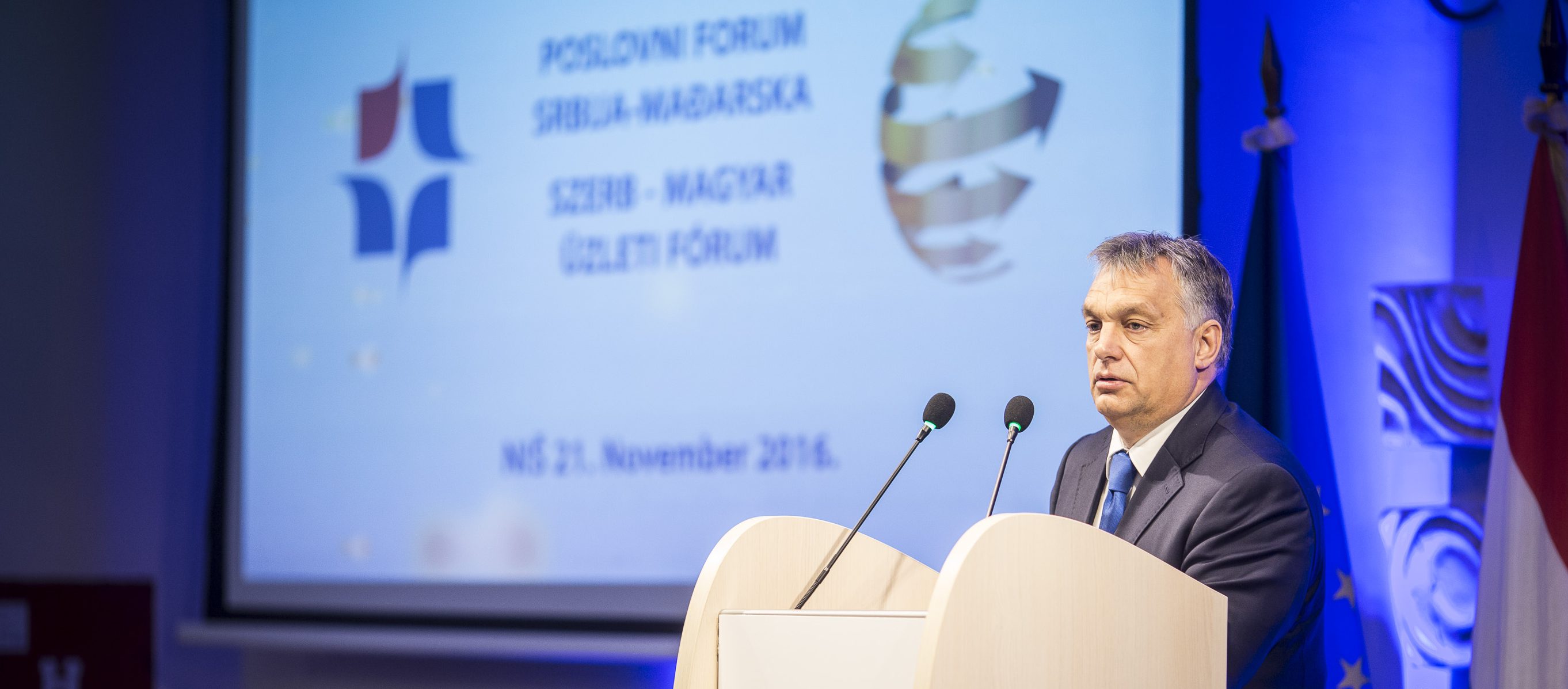
At the forum, which was organised to coincide with the Hungarian-Serbian intergovernmental cabinet summit, the Hungarian prime minister said that “In future years the big success story will be Central Europe and the countries of the Visegrád Group [V4]; this is where the truly big economic opportunities are and will be – to which Serbia may also be connected”.
“Hungarian-Serbian relations have never been so good”, he stressed. “Over the past two to three years Serbia has successfully consolidated its finances; its economy is now firmly established, with good growth prospects”, he pointed out. He added that “Hungary started from the depths in 2010, but since then it has created an economic environment in which we can begin talking about the measures required to achieve economic growth approaching 5 per cent; the country has built up major economic potential”.
Mr. Orbán stated that it would be difficult to find a period in history in which relations between the two peoples were as balanced, strong and friendly as they are now. “This has not come about by itself, or through luck; to achieve it has required much work – including from the Government and Prime Minister of Serbia”, he added.
“Previously, Serbian economic indicators did not arouse much hope, but we must rely on our knowledge of each other, and we see the opportunity in others. From Hungary’s perspective, we have always regarded Serbia as an opportunity”, he said.
The Hungarian prime minister urged Hungarian businesspeople to “put Serbia back on the map” – not just Vojvodina or Belgrade, but the whole country. “Serbia’s economy is on a growth trajectory, despite the fact that it isn’t a member of the EU”, he pointed out.
“The country’s growth is still considerable and Hungary supports Serbia’s accession to the European Union, which will open up further opportunities”, Mr. Orbán said, adding that whoever establishes a presence on the Serbian market now will acquire a long-term, dependable business opportunity.
Mr. Orbán also spoke about the fact that Hungary is facilitating cooperation via economic development measures, and is providing a credit line of 61 million euros to finance cooperation between Hungarian and Serbian enterprises; once this amount is spent, Hungary is capable of greatly increasing the level of funding.
The Prime Minister said that in his opinion we no longer live in an era in which business can only be conducted at the expense of one another: now enterprises can feel free to search for partnerships and find points which benefit both countries – as can already be seen within the V4.
Prime Minister Orbán told the Serbian businesspeople present that the Hungarian government would also like to see the appearance of Serbian capital in Hungary, because in the long term this will facilitate peaceful and balanced bilateral relations. He said he feels that a major, priority flagship project is still needed, but that when the Budapest-Belgrade railway line project finally reaches the construction phase it could fill this role and provide encouragement for further investment projects.
For his part, Serbian prime minister Aleksandar Vučić said the following: “Over the past two years Serbia has made huge progress, which has also been recognised internationally; we have succeeded in reducing bureaucracy, accelerated the issue of licences and enabled more rapid trading. The Serbian economy is expanding significantly, with 3.5 percent growth planned for next year”.
“The current goals are diversification of development, and increases in consumption and retail turnover”, he said. “In the years ahead we would like to catch up with Hungary and other similar countries”, he explained.
The Serbian prime minister said that an important goal is to attract investment. He said that his country’s primary advantage is its affordable and highly-trained workforce, and he declared that Serbia provides the best conditions for investment.
Mr. Vučić also encouraged Serbian businesspeople to invest in Hungary, because, he explained, by doing so they will reinforce bilateral relations and trust between the two countries.
